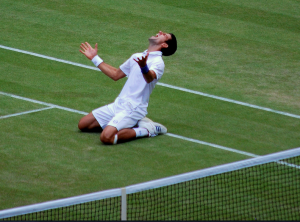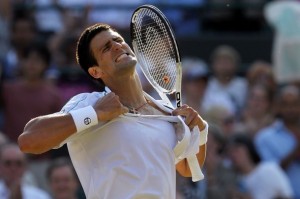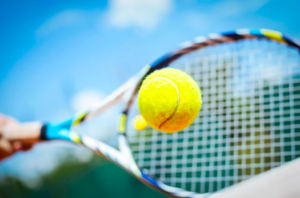As if his off-court controversies weren’t enough, Novak Djokovic found himself in the middle of a new one when he was unceremoniously ousted from the US Open 2020 for hitting a line umpire. The on-court misdemeanor in which the World No.1 unintentionally hit the line umpire in the throat has resulted in a raging debate. Was it right to dole out such a harsh punishment on one of the finest tennis players of this millennium?
Novak Djokovic, a favorite to win the US Open 2020, got embroiled in a new controversy while playing against Pablo Carreno Busta, his Spanish opponent. On losing a serve to his Spanish opponent, Djokovic hit the ball out of the court out of sheer frustration, and it hit the throat of the line umpire. The line judge seemed to be gasping for breath and was immediately taken to the hospital for further treatment as Djokovic kept apologizing profusely.
Now, this is not the first time that an umpire or official bore the brunt of such unintended out-of-frustration blows. From Tim Henman’s 1995 Wimbledon disqualification to Denis Shapovalov being disqualified in 2017, there’re multiple instances where players were disqualified because of their misdemeanor. Since Roger Federer and Rafael Nadal are not playing in the US Open 2020, Djokovic’s removal paves the way for a new men’s singles Grand Slam champion.
How did it all happen?
During the first set, when the points were leveled at 5-5, Djokovic’s lost the serve to his opponent, which implied that Pablo Carreno Busta was to serve for the next set. In an apparent display of frustration, Djokovic picked up the ball and, without glancing at his back, hit the ball quite hard. The ball hit the line umpire in the neck, and she fell on the ground clutching the neck.
As soon as Djokovic realized his mistake, he raised his arm to apologize and walked towards the line umpire to check on her. Aurélie Tourt (the chair umpire), Soeren Friemel (the tournament referee), and Andreas Egli (Grand Slam Supervisor) also followed. The huddle of the officials lasted for 10 minutes, and after the discussion, Djokovic was defaulted by Friemel.
Did the umpire follow all the rules?
If we were to carefully read the USTA’s statement, we would surely get a better perspective. According to it, the decision was based on the Grand Slam rulebook, explaining that any disregard for the consequences when throwing the ball might lead to disqualification. Due to this default, Djokovic will be revoked of his ranking points collected through his performance at the US Open 2020. He will also be fined the winnings he made during the tournament, and the expanses that might arise due to the incident.
Now, we are aware that default is handed out to players in rare cases. It’s often done when either a single mistake or accumulation of multiple warnings includes racquet abuse, ball, verbal, unsportsmanlike conduct, or any other offenses.
If we refer to the rulebook of ITF Grand Slam, under Section T, we can find the following: “The Referee in consultation with the Grand Slam Chief of Supervisors may declare a default for either a single violation of this Code or pursuant to the Point Penalty Schedule set out above.”
Thus, Djokovic’s action, intentional or not, comes under the purview of this rule. Contrary to what his fans think, the umpire has adhered to the rulebook, and his decision is appropriate. While fans might be sad to see the player go, his actions might be a good lesson to all.
A repeat offender on and off the court
Dangerous behaviors of Djokovic on and off the court have often led to unwanted media attention and controversies. During the 2016 French Open, he had flung the racquet backward, which missed a line judge by a whisker. In the same year, during the ATP Tour Finals, Djokovic ended up hitting the ball towards the stands, which he later trivialized. Obviously, both the incidents did not result in any default.
He was in the news for all the wrong reasons for arranging a charity event during the COVID-19 pandemic off the court. He was criticized for violating the social distancing norms and not following the safety guidelines during the event.




